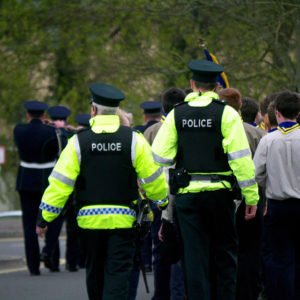workplace assault
Up to 50 prosecutions for assaults on emergency workers every day, according to CPS
In the first year of legislation making attacks on emergency workers a specific offence, The Crown Prosecution Service says it has prosecuted more than 50 assaults a day.
 In the year from November 2018, when the Assaults on Emergency Workers (Offences) Act came into effect, there were nearly 20,000 offences charged, three-quarters of which were assault by beating.
In the year from November 2018, when the Assaults on Emergency Workers (Offences) Act came into effect, there were nearly 20,000 offences charged, three-quarters of which were assault by beating.
The data shows that 90% of those assaults were against police officers, with the suspect intoxicated on drink or drugs and being arrested for an unrelated offence in almost all cases. The most common offence was for spitting, but the violence was wide-ranging and included kicking, punching, head-butting, slapping and biting.
The CPS data is based on the number of offences charged, rather than individual defendants.
Ministry of Justice figures for 2018, based on the first cases to go through the courts, show a conviction rate of 90%.
Following a series of high-profile assaults last summer, the Director of Public Prosecutions met with police colleagues to discuss their concerns about rising levels of violence towards officers.
Guidance
In response to this news, the CPS has issued revised guidance to prosecutors clarifying its approach to these cases and has published a joint agreement with emergency services chiefs across the country.
Max Hill QC, Director of Public Prosecutions, said: “Emergency workers provide a vital public service – the fact they endure vile abuse like spitting and even physical assault in the course of their duties is appalling and unacceptable. These attacks must never be considered as ‘just part of the job’.
“These are serious crimes and it is encouraging to see our prosecutors have used the new legal powers to bring offenders to justice.
“Having been made aware of police concerns during the first year of this new legislation, I have met with senior officers and the CPS has updated legal guidance to strengthen our approach to these appalling offences.”
A new joint agreement has been struck between partners at the National Police Chiefs Council, NHS England, HM Prison Service and the National Fire Chiefs Council, which sets out efforts to prosecute cases robustly and support staff.
Measures in the updated AEW guidance include:
- Ensuring that prosecutors seek the maximum sentence in court, including playing any body-worn footage to the judge;
- Impressing upon prosecutors the need to charge assaults on emergency workers where the Code Test is met, even where more serious offences have been committed, so the conduct is reflected on the defendant’s criminal record;
- Taking victims’ views into account when pleas to other offences are accepted or cases discontinued, with special consideration given to the vulnerability of the emergency worker, at the time of the assault;
- Underlining the requirement to treat assaults committed on bail or licence as an aggravating feature.
Mr Hill added: “We want to send a strong message that this deplorable behaviour will be met with the full force of the law.”
Up to 50 prosecutions for assaults on emergency workers every day, according to CPS
In the first year of legislation making attacks on emergency workers a specific offence, The Crown Prosecution Service says it has prosecuted more than 50 assaults a day.
Ankit Kumar
SHP - Health and Safety News, Legislation, PPE, CPD and Resources
Related Topics
Protecting health workers is a complex challenge, but emerging strategies show promise
90% of retail workers have been abused by customers, survey reveals
Over 90% of stalking victims experience psychological impacts

 In the year from November 2018, when the
In the year from November 2018, when the